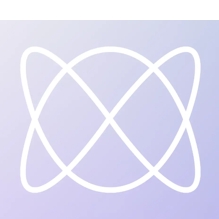| Ladybird - An Independent Web Browser |
| Written by Ian Elliot | |||
| Wednesday, 03 July 2024 | |||
|
Ladybird sets out to be an independent Web Browser, free of Google (or any) advertising. It has taken the step of becoming a non-profit project on receiving a $1 million donation from GitHub founder, Chris Wanstrath, to aid its development. This is very probably the first time you've heard of Ladybird so let's look at its background. It began life as an HTML viewer for SerenityOS hobby operating system but has grown into a cross-platform browser supporting Linux, macOS, and other Unix-like systems, Similarly SerenityOS might be unfamiliar as, by insisting on no re-use of existing codebases, it keeps well apart from mainstream operating systems. Development of SerenityOS as a from scratch-operating system was started by Andreas Kling in 2018 as an open source project to keep himself occupied and engaged after completing a drug rehab program. After 6 months working on it alone he invited others to participate. By 2022 Kling's "little therapy project" had blossomed into a huge OSS community with hundreds of people working on it from all over the world. It was at this point that Kling posted on his substack: in addition to building a new OS for myself, I’m also going to build a cross-platform web browser. And so Ladybird, based on the LibWeb and LibJS engines from SerenityOS, became Kling's main focus, in collaboration with many others from the SerenityOS community. In June 2023 it gained its first corporate sponsor, Shopify, which contributed $100,000 to it development. Now a year later, and with an OSS community of over a thousand contributors, Kling has announced he is stepping down as SerenityOS BDFL (Benevolent Dictator For Life) and forked Ladybird into a separate project top-level project which is targeted at Linux and macOS, dropping Serenity OS as a target and also relaxing the strict NIH policy adopted for SerenityOH which refuses to use any existing code. Kling has said that instead of "no 3rd party code" Ladybird will leverage existing open-source resources. What continue to be different about Ladybird is that is: a truly independent web browser This is what has prompted Chris Wanstrath, the founder of GitHub and its CEO until its acquisition in 2018 by Microsoft, to contribute $1 million to the project and cofound the Ladybird Browser Initiative with Andreas Kling as a non-profit to oversee its future. As Wanstrath explains: Today, every major browser engine is open source, which is wonderful, but there's still one issue: they're all funded by Google's advertising empire. Chrome, Edge, Brave, Arc, and Opera all use Google's Chromium. Apple receives billions to make Google the default search engine in Safari, and Firefox has a similar deal where they receive hundreds of millions each year. He continues: The web is too essential to have one primary source of funding, and too important to have that source of funding be advertising. and states his belief: The world needs a browser that puts people first, contributes to open standards using a brand new engine, and is free from advertising's influence. If you think you have heard this argument before, you have - from Brendan Eich, the creator of JavaScript, who, having left Mozilla where he worked on Firefox, launched Brave, an ad-blocking browser, in 2016. At the time we reported that the Brave startup had a workforce of 10 people and an investment of $2.5 million in seed funding. Brave has claimed success in that for its first 5 years it doubled its user base year on year, surpassing 50 million monthly active users in December 2021. That number has since grown to nearly 68 million. Even so it's insignificant - less than 1% of the global browser market, compared to Chrome's 66% share and Apple Safari's 18%. Kling too has previous history with browsers having worked on WebKit for Apple and NVIDIA so if it is possible lead to team to build a competitive browser he's well positioned to do it. But excluding Windows from the list of targets reduces the potential audience and not being available until at least 2026 is another tick in the "Cons" column. While I agree with the idea that an independent web browser is in the best interests of the Web and all web users, as developers, do we really need, or even welcome, another browser. Having Chromium as the common factor for Chrome, Edge, Opera, and Brave, our workload has been reduced. If Ladybird does fly then we'll have to learn all about it.
More InformationRelated ArticlesBrave Browser Surpasses 50 Million Users Brendan Eich Launches Brave New Browser Brave Browser Reaches Version 1.0
To be informed about new articles on I Programmer, sign up for our weekly newsletter, subscribe to the RSS feed and follow us on Twitter, Facebook or Linkedin.
Comments
or email your comment to: comments@i-programmer.info |
|||
| Last Updated ( Wednesday, 03 July 2024 ) |




